Levers of Exchange
All Episodes

11. S03E11 Organizing your company to remove a Gigaton of Carbon
28:33||Season 3, Ep. 11What we discussed: We have a proliferation of agreements, commitments, and pledges to achieve climate mitigation. But what’s underneath the pledges? And which pledges achieve the action that we need? Kaya Axelsson and I discussed incentives, purpose of business, and pledges in our reflection of Season 3 interviews. Why it matters: What if every think tank, university department or company organized themselves with the responsibility of reducing 1 gigaton of carbon? This is a simple metric that allows people to thrive in their job yet organize the goal to meaningful impact. What it means for you: There is carbon being emitted from every sector – whether agriculture, real estate, manufacturing, retail, and so on. Which gigaton of reduction are you focused on? About Kaya Axelsson: https://www.linkedin.com/in/kaya-axelsson-7057834b/About Levers of Exchange:Interview by Jimmy Jia (www.jimmyjia.com)Music by Sean Hart (www.seanhart.com)Website: https://www.leversofexchange.com/ Season 3 is funded by a generous grant from the Skoll Centre for Social Entrepreneurship, at the Saïd Business School, Oxford University.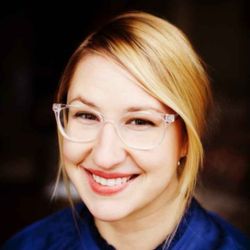
10. S03E10 Building collaborations by sharing a meal
24:12||Season 3, Ep. 10What we discussed: Systems change needs people who have broad views and understands the details. Kaya Axelsson and I reflected on the similarities behind the differences of electric utilities, water systems, telecom, financial and maritime sectors that our guests discussed. Why it matters: The general concepts of systems change needs to be implemented by practitioners who are deeply focused on the details of how their system works. When we zoom out to see the commonalities, we see how the challenges in one sector may have already been addressed by another sector. What it means for you: Bonus ContentAbout Kaya Axelsson: https://www.linkedin.com/in/kaya-axelsson-7057834b/About Levers of Exchange:Interview by Jimmy Jia (www.jimmyjia.com)Music by Sean Hart (www.seanhart.com)Website: https://www.leversofexchange.com/Season 3 is funded by a generous grant from the Skoll Centre for Social Entrepreneurship, at the Saïd Business School, Oxford University.
9. S03E09 Skills that students should learn
11:34||Season 3, Ep. 9Personal Resilience. Vision. Listening, and a sense of curiosity. These were the skills that our Season 3 guests recommended students and early career professionals learn today if they want to enter the sustainability sector. Our guests spanned across telecom, water, finance, maritime, electric utilities and cultural systems. I was curious, are the skills to succeed the same or different? I asked every guest, what skill they would advise a student or early professional to learn. The answers were very revealing.Natalia Pshenichnaya, the former Head of Programmes at the GSMA Foundation tied personal resilience to how this deeper inner awareness keeps the person grounded in what's important to them. Joaquin Viquez, a water consultant for the German Development Agency G-I-Zed, also pointed out the importance of a vision and personal passion.James Mitchell trained as a cellist before creating a career in Sustainable Finance. Now at the Rocky Mountain Institute, he pointed out that just like in a chamber music group, listening to each other, hearing each other, responding and reacting in kind with each other, is a critical skill to learn.Three of our guests, however, pointed out the power of curiosity and asking the right question, including Jeremy McDaniels, now the Senior Advisor for Sustainable Finance at the Institute of International Finance.Stuart Hilen, a Portfolio Developer at EnergyAustralia, put it differently. He considered the skills he looks for when hiring team members.Finally, Shruthi Vijayakumar summed it up beautifully. Questions invite others into our own space, to question with us.So, there you have it. Those are the skills that students and early career professionals should learn. It's not the textbook lessons that will create systems change. It's the interpersonal skills of inviting others in, of making chamber music together, that will create the new systems for everlasting change. Guests:· Stuart Hillen, EnergyAustralia, Melbourne, Australia https://www.linkedin.com/in/stuart-hillen/· Jeremy McDaniels, Institute of International Finance, Washington DC USA https://www.linkedin.com/in/jeremy-mcdaniels/· James Mitchell, Rocky Mountain Institute, London, UK https://www.linkedin.com/in/james20/· Natalia Pshenichnaya, formerly GSM Association, Berlin, Germany https://www.linkedin.com/in/natalia-pshenichnaya-7107781a/· Shruthi Vijayakumar, Education New Zealand, Auckland, New Zealand https://www.linkedin.com/in/shruthivijayakumar/· Joaquin Viquez, Deutsche Gesellschaft für Internationale Zusammenarbeit, San Jose, Costa Rica https://www.linkedin.com/in/joaquinviquez/ About Levers of Exchange:Interview by Jimmy Jia (www.jimmyjia.com)Music by Sean Hart (www.seanhart.com)Website: https://www.leversofexchange.com/Image by Juraj Varga from Pixabay Season 3 is funded by a generous grant from the Skoll Centre for Social Entrepreneurship, at the Saïd Business School, Oxford University.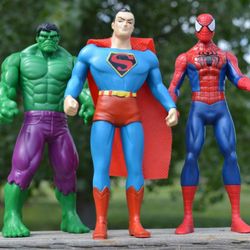
8. S03E08 What’s your superpower skill in making systems change?
12:20||Season 3, Ep. 8Have you ever wondered if skills that got us to where we are today, may not be the same skills needed to solve the world's most pressing problems? For those who have been listening to Season Three, you know that we interviewed six practitioners who work deeply at the intersection of large systems. What are the skills necessary to thrive at those intersections?Shruthi Vijayakumar, a Global Shaper at the World Economic Forum and co-founder of the Emerge Institute, points out that making sense of cultural systems means understanding the historical context and how one fits into the social fabric. For Stuart Hillen, a Portfolio Developer at EnergyAustralia, as an engineer, he found his calling using his problem-solving skills to understand how things work and how things are made.Another trained engineer, Joaquin Viquez who works for the German Development Agency GIZ. He attributed a sense of knowing what's missing rather than noticing what was there.For all of us who work at the intersection of systems, it's communication that is the ultimate skill. Communication comes in many forms. For James Mitchell, Principle at the Rocky Mountain Institute, the stakeholder engagement he had to do in the maritime sector required a lot of listening in order to get the Poseidon Principles launched. Natalia Pshenichnaya, who spent many years at the GSMA Foundation, found new products and applications of how the Telecomm sector could alleviate poverty and improve agriculture businesses in Sub-Saharan Africa. She pointed out the importance to articulate messages in the language and jargon of whomever she was talking to.Finally, Jeremy McDaniels credited facilitation skills at bringing people together across many sectors. As the Senior Advisor for Sustainable Finance at the Institute of International Finance, he interacts with global actors, across 400 institutions and tries to strive for consensus.So there you have it - it's the art of figuring out what's possible. Some of it is curiosity driven, some of it is breaking down big problems into its constituent parts. But time and again, we heard just how important it is to translate between stakeholders - the jargon, the expectations and the underlying mentalities. Hopefully this episode gives you an idea of what skills you have, and what you can develop for a successful future.Guests:Stuart Hillen, EnergyAustralia, Melbourne, Australia https://www.linkedin.com/in/stuart-hillen/Jeremy McDaniels, Institute of International Finance, Washington DC USA https://www.linkedin.com/in/jeremy-mcdaniels/James Mitchell, Rocky Mountain Institute, London, UK https://www.linkedin.com/in/james20/Natalia Pshenichnaya, formerly GSM Association, Berlin, Germany https://www.linkedin.com/in/natalia-pshenichnaya-7107781a/Shruthi Vijayakumar, Education New Zealand, Auckland, New Zealand https://www.linkedin.com/in/shruthivijayakumar/Joaquin Viquez, Deutsche Gesellschaft für Internationale Zusammenarbeit, San Jose, Costa Rica https://www.linkedin.com/in/joaquinviquez/About Levers of Exchange:Interview by Jimmy Jia (www.jimmyjia.com)Music by Sean Hart (www.seanhart.com)Website: https://www.leversofexchange.com/Image by ErikaWittlieb from PixabaySeason 3 is funded by a generous grant from the Skoll Centre for Social Entrepreneurship, at the Saïd Business School, Oxford University.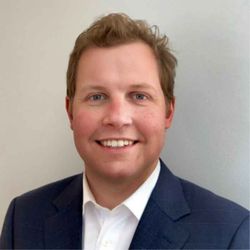
7. S03E07 Jeremy McDaniels, Senior Policy Advisor Sustainable Finance, Institute of International Finance
46:46||Season 3, Ep. 7What we discussed: Wouldn’t it make sense, if climate change is a global issue, that we have a consensus in how to approach it? Unfortunately, it’s not as easy as it seems. Although the financial sector is building consensus around required disclosures using the framework developed by the Taskforce for Climate-related Financial Disclosures (TCFD), different countries are implementing it in different ways. Thus, a fragmentation of policies and approaches may unintentionally undermine progress.Why it matters: There is a tension between explore/exploit. Sometimes, the best strategy is to explore new options by segmenting, fragmenting, and allowing multiple solutions to crop up, while other times it’s best to exploit the best option so as to achieve efficiency of scale. The question is: does the financial sector still need to explore ideas of how to align finance to environmental outcomes, or do we need to exploit the structures and methodologies already developed? What it means for you: As you go about implementing systems change, reflect on whether you need new ideas (explore) or you need efficiency gains of existing processes (exploit).Interviewee’s Bio:Jeremy McDaniels, Institute of International Finance, Washington DC USAM.S. in Environmental Management (Dist.), University of Oxford, SSEEAs Senior Policy Advisor, Sustainable Finance, in the IIF Global Policy Initiatives department, Jeremy leads projects on climate risk assessment, disclosure, terminology and definitions. He also supports the IIF’s engagement on sustainable finance policy and regulatory issues with international standard-setting entities. https://www.linkedin.com/in/jeremy-mcdaniels/ In this interview, we discussed the following questions:What's your favorite movies and what's your favorite media?How we interact with sustainability data is becoming incredibly timely.How would you frame sustainable finance as you try to move the world towards net zero goals?Can you elaborate on what materiality means? When you say materiality, what viewpoint do you mean?What is the Institute for International Finance (IIF), and what is your role within IIF?Should there be a monolithic goal for the finance sector to minimize fragmentation, or should each subsector set their own localized sustainability goals?Can you clarify TCFD, Taxonomy and other standards because they each have different roles in sustainable finance?What are some global / geographic challenges that you think can be simplified for sustainability purposes?When you're working at such high levels, how granular do you need to be on the ground to make these decisions?Is any financial subsector more advanced in their sustainable finance thinking and approach?Do you notice a 'translation' issue as different financial sectors grapple with the common problem of climate change?We've spent a lot of time talking about risk, what do you see within the opportunity space?Finance, like legal, accounting, telecommunication, and many others, are just enabling infrastructures for the real economy.When we start bringing time into the equation, time introduces risk. Where is there a lot of uncertainty today? Where did you first get exposed to sustainability as the field you wanted to dedicate your career towards?What did you find at the intersection of media and the public? What do you consider to be your primary skill?To a current student, what skill or expertise do you encourage them to learn?About Levers of Exchange:Interview by Jimmy Jia (www.jimmyjia.com)Music by Sean Hart (www.seanhart.com)Website: https://www.leversofexchange.com/ Season 3 is funded by a generous grant from the Skoll Centre for Social Entrepreneurship, at the Saïd Business School, Oxford University.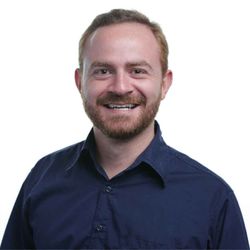
6. S03E06 Joaquin Viquez, Technical Advisor, Deutsche Gesellschaft für Internationale Zusammenarbeit
44:27||Season 3, Ep. 6What we discussed: From water, wastewater, biodigestion and agriculture, Joaquin and I talked about how growing up on a farm in Costa Rica influenced his approach to problem solving as well as some of the critical challenges faced by his country. Through his stories, we looked at how the issues he’s worked on are interrelated, and which skills have been transferrable between sectors. Why it matters: Joaquin thoughtfully pointed out inquiry and curiosity as the critical skills to understanding how systems work and implementing change. He’s not embarrassed to not knowing the answer, and he unabashedly asks “why” as a way of finding out.What it means for you: That confidence to explore what one doesn’t know is a skill that systems change agents can adopt. Shruthi pointed it out too in her interview – there needs to be a humility in acknowledging what we don’t know as much as we need to recommend best practices of what we do know. Interviewee’s Bio:Joaquin Viquez, Deutsche Gesellschaft für Internationale Zusammenarbeit, San Jose, Costa RicaMBA, Saïd Business School and Skoll World Forum Fellow Joaquin Viquez is an Agricultural Engineer and a passionate social entrepreneur with 15 years of experience in Latin-American working in environmental projects, water and sanitation. He currently works for the German Agency for Cooperation GIZ in its office in Costa Rica in a regional water and sanitation projects. https://www.linkedin.com/in/joaquinviquez/ In this interview, we discussed the following questions:You grew up in an agriculture family. How did that shape your childhood?How do you view problems through experience? How old were you when you had that formative moment?What were some of the things you tried to do with the extra fruit?You won Technology Review 35 from MIT. That award was given to you for an extension of this idea.What was the technology you won for?Can you elaborate a bit about the methane problem, from the climate side?What were some of the value-added benefits you were able to get to the farmer?How do you personalize a biodigester?What questions were farmers asking of you and what were the factors you could tweak?So how did you pivot working in biogas to working in water? What's the connection there?Can you give us an overview of what are the key issues of wastewater treatment and sanitation?Do different geographic scales (national, regional) have different sanitation issues?Water can be super hyperlocal. How do you deal with that?Can you ever take a technology and plop it into a community, or do you have to tweak for that community?Tell us about GIZ and how it tries to tackle some of these water issues in Costa Rica.What would you say is your critical skill that you're bringing to the team?How important is it to work with local representatives to take care of one's own backyard?What's the web of moving parts that drive towards sanitation outcomes?Water and wastewater - is it more common for one company to manage both?The agriculture / water nexus isn't just watering plants, it's also dissolved phosphorous. Can you explain that?We talked about several different systems and their stakeholder groups. When you're getting introduced to a new system, how do you tease it apart?How do you create systemic shifts?When did you first notice the web of moving parts and when did you decide to do something about it?It's important to notice what's missing! How would you describe the sense of noticing what's missing vs. noticing what's there?The feeling of inquiry and naivety is a benefit of coming in as an outsider.What's your approach to problem solving?Do you see a type of urban development that's more sustainable than others?Most infrastructure tries to centralize for efficiencies scale. But in wastewater you see the opposite, so that localities can take advantage of natural-based solutions.Why is that? What's unique about water / wastewater such that decentralization is preferrable?To a student, what skill would you encourage to learn? About Levers of Exchange:Interview by Jimmy Jia (www.jimmyjia.com)Music by Sean Hart (www.seanhart.com)Website: https://www.leversofexchange.com/Season 3 is funded by a generous grant from the Skoll Centre for Social Entrepreneurship, at the Saïd Business School, Oxford University.
5. S03E05 Natalia Pshenichnaya, former Head of Programs, GSMA Foundation
47:55||Season 3, Ep. 5What we discussed: In a developing country, the mobile phone is a person’s first interaction with technology. Thus, the telecom sector is at the tip-of-the-spear to offer banking services, agricultural notifications and health services to hard-to-reach areas.Why it matters: Within 5 years, climate change will change the agricultural crops across much of the world. Yet for small-holder farmers, working on family plots, they are cut off and unaware of the disruption to their livelihoods that is coming their way. What it means for you: It took innovative business models in order to convince the telecom sector to offer new products and innovation in rural areas. Yet the ones who did, reached customer loyalty upwards of 70%, unheard of in the sector. This podcast is a classic case of getting to know your customers on-the-ground to develop life-changing products and services.Interviewee’s Bio:Natalia Pshenichnaya, formerly GSMA Foundation, Berlin, GermanyMBA, Saïd Business SchoolAs Head of Programs, Natalia oversaw GSMA Foundation’s global portfolio of telecommunication innovation projects. She managed multi-million progammes (£10-20M+) across all stages: from design to evolution, pivot and completion, including GSMA AgriTech, CleanTech and mHealth initiatives. https://www.linkedin.com/in/natalia-pshenichnaya-7107781a/ In this interview, we discussed the following questions:What are some of your favorite vegan recipes?What was it like growing up vegetarian in Russia?How did you start your career in the Telecom sector?When you got to GSMA Foundation, you fell into just the right mix based on your interests. What was your role?What is GSMA Foundation as an organization? Why do you think the telecom sector got interested in impact broadly, but also agriculture specifically? Is competition beyond your traditional industry sector going to become more common through internet-of-things and technology?When you were talking to the farmers on the ground in Kenya, what were some of the problems they would reveal to you?We're talking about small holders, independent farmers who own their own plots. They are subject to these massive shifts in climate.Where does the telecom technology come in and what were some technology solutions?Why could the telecom sector make a difference when other sector couldn't?What was it like when you started off in AgriTech? What was your north star? What do you think is the role of the enabling technologies to climate change?It hints at how societal acceptance of technology lags behind technology adoption. Did you see similarities in working with farmers and with medical tech? What do you consider to be your primary skill?How complex was this interconnected web that you had to work within?There is lot if inertia to not do things when there are multiple stakeholders. How did you find leverage to make change happen?What is what you're most proud of?When you jump into a project that not only you haven't done before, but no one has done before, what do you do first?To a student or early professional today, what skill or expertise do you recommend them to learn? About Levers of Exchange:Interview by Jimmy Jia (www.jimmyjia.com)Music by Sean Hart (www.seanhart.com)Website: https://www.leversofexchange.com/ Season 3 is funded by a generous grant from the Skoll Centre for Social Entrepreneurship, at the Saïd Business School, Oxford University.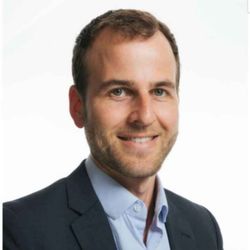
4. S03E04 Stuart Hillen, Portfolio Development Lead, EnergyAustralia
50:17||Season 3, Ep. 4What we discussed: Except for roads, we don’t tend to interact with large, physical infrastructures. For sure, we see the wires of the electric grid, but we don’t commonly see the electric power plans, refineries, and substations. Stuart and I discussed the business models and challenges that electric utilities face in Australia as they undertake decarbonization efforts. Why it matters: We often forget that we rely on infrastructure being available 100% of the time. Yet the cost of keeping the electric grid operating at that level is immense. Utilities build physical hedges in terms of overcapacity so as to provide certainty on uptime. What it means for you: As you think of system change, think of the failure modes of the system. How many failures are you willing to tolerate? How many can you avoid, and how many backup plans do you need to draw up to guarantee a certain performance criteria? Interviewee’s Bio:Stuart Hillen, EnergyAustralia, Melbourne, AustraliaMBA, Saïd Business SchoolAs Portfolio Development Lead Stuart is responsible for originating and executing generation development opportunities to transition EnergyAustralia’s 5,000 MW generation portfolio. Technologies covered include utility scale storage, pumped hydro and renewable investments. https://www.linkedin.com/in/stuart-hillen/ In this interview, we discussed the following questions:What's your favorite infrastructure?What were the critical skills you learned as a civil engineer that helps you with your day-to-day jobs?What is the problem solving approach you take as a trained engineer? What's your role at EnergyAustralia?What stage of project development do you get involved in? What is the business model of EnergyAustralia?So you try to have the right physical portfolio mix to provide electricity. When you don't have it, you procure it from the market.Can you describe dispatchable power? Batteries time-shift resources, depending on what's available on the market. Given these movements of fuel shifting globally, what's the role of the utility in decarbonized future?There is quite a bit of indication to "electrify everything". It implies the need to double the size of the electric sector to absorb the transportation sector!You've mentioned a smattering of technologies. Technology cycles are usually 6-18 months, yet utilities need to think in 30 years. As a project developer, how do you match these time cycles?When you're project financing, how much do you have to take into account new business models? What is the not-often discussed field of Ancillary Services?Can you comment on the high costs to effectively maintain 100% uptime of the electric grid?Sometimes the overbuilding is criticized as waste, but to maintain nearly 100% uptime, one just need physical assets as hedges.Another way of creating that resiliency is fuel switching. What's the advantage of the hybrid power plant you worked on?Is Hydrogen a drop in fuel for Natural Gas? Have you seen the trend of hydrogen projects?Hydrogen electrolyzes produce the hydrogen. What sounds unclear is whether the electric utility should own the business model of producing hydrogen, right?When you're evaluating technologies, how do you know if a technology is "good enough"?Are we waiting for technology to improve, or for capital to implement?How many different stakeholders get involved and how many do you have to satisfy? When did you first get exposed to these issues that made you want to work with an electric utility?Were you surprised by the level of complexity of the stakeholders and issues involved?What is it about complexity that made you want to seek it out?So basically, complexity gives you job variety!To a student or early professional, what skill would you recommend them to learn?Curiosity has a humbleness of knowing that there's more to know, and a seeking of what one's lacking.About Levers of Exchange:Interview by Jimmy Jia (www.jimmyjia.com)Music by Sean Hart (www.seanhart.com)Website: https://www.leversofexchange.com/ Season 3 is funded by a generous grant from the Skoll Centre for Social Entrepreneurship, at the SaïdBusiness School, Oxford University.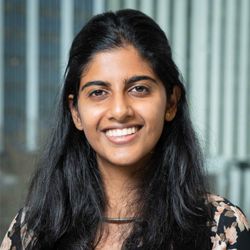
3. S03E03 Shruthi Vijayakumar, Global Shaper, World Economic Forum
50:47||Season 3, Ep. 3What we discussed: The fabric of society is a fine mesh of cultures. When we change world views – from western to Indian to Maori – we find different interpretations of how each culture considers their environment. Why it matters: A sustainable future requires us to make new connections and partnerships with unlikely stakeholders. Yet each of these stakeholder groups are going to have their own expectations, assumptions and modus operandi. Shruthi is really teaching us how to be aware of the different groups we identify with, and how we can translate across those groups to achieve a sustainable future. What it means for you: This episode highlights the importance of understanding a person’s cultural roots and heritage as a lens of how they view sustainability. We can apply the same principles of listening, curiosity, and inviting others to join our journey, to our professional lives and our personal lives. Interviewee’s Bio:Shruthi Vijayakumar, Global Shaper, World Economic Forum, Auckland, New ZealandMBA, Saïd Business School and Skoll World Forum FellowShruthi is an educator, coach, facilitator and strategist in the field of systems leadership, sustainability and innovation. She has been recognized as a Global Shaper by the World Economic Forum and a Global Changemaker by the British Council. She has spoken at WEF’s Annual Meeting in Davos and TEDx. https://www.linkedin.com/in/shruthivijayakumar/ In this interview, we discussed the following questions:What is your favorite Haka moment?What is the relationship between the Maori people and the New Zealand Government?How does your multi-ethnic background frame your work in equity, justice and inclusion?How would you frame environmental world view from these different frames?How would you say that influences the work that you do? What would you consider your most important skill?When you're facilitating these conversations, how do you impart that fabric of society onto the people you're facilitating?When did you first noticed the interconnected web of moving parts?About what age were you?What were some of the grassroots projects you participated in?When did you realize you could leverage change within this tangled web?What was it like being inside the Boston Consulting Group?How did you see innovation work within consulting vs. the work you do today? What's the difference between inclusion and building the table together?What does Emerge Institute do?Can you please speak to some of your work at ocean lab?When you have big systemic change goals, how do you bring people along?If you were to re-imagine the education system, what would you do?What skill or expertise would you encourage students to learn? About the Levers of ExchangeInterview by Jimmy Jia (www.jimmyjia.com)Music by Sean Hart (www.seanhart.com)Website: https://www.leversofexchange.com/ Season 3 is funded by a generous grant from the Skoll Centre for Social Entrepreneurship, at the Saïd Business School, Oxford University.
loading...